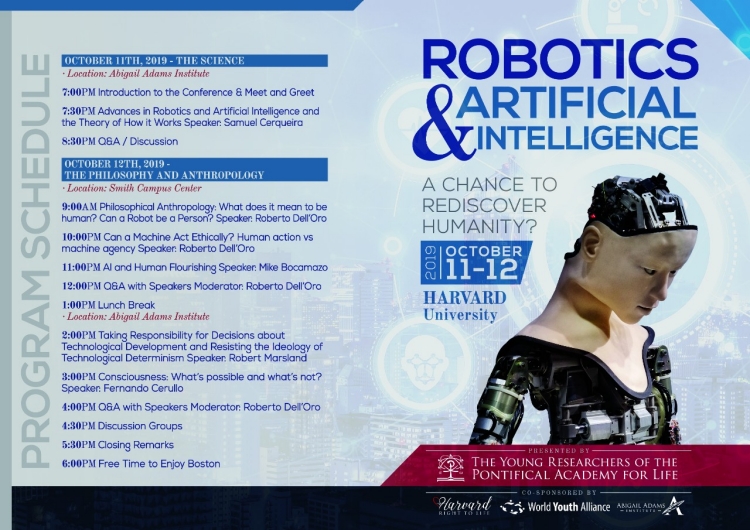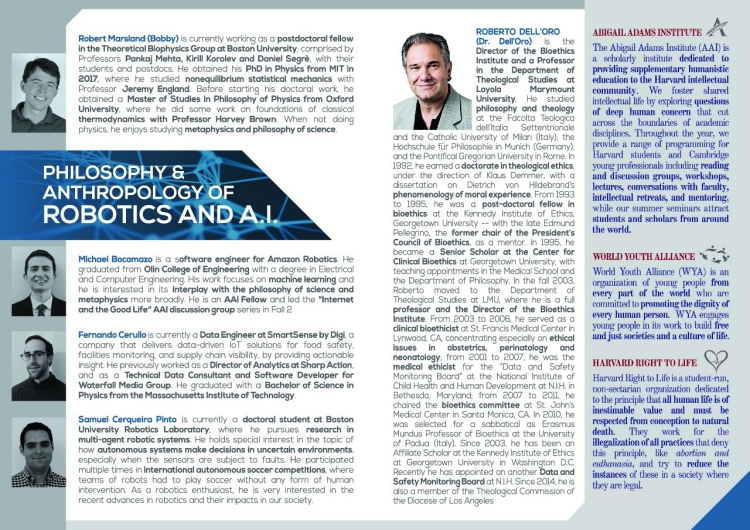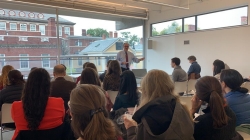Artificial Intelligence - Young Resarchers Conference

The Pontifical Academy for Life, in partnership with the World Youth Alliance, Abigail Adams Institute, and the Harvard Students for Life, has organized a conference for young professionals and students on the weekend of October 11-12, 2019, at Harvard University (Boston, USA).
This conference was open to young professionals and students <35 years old.
























